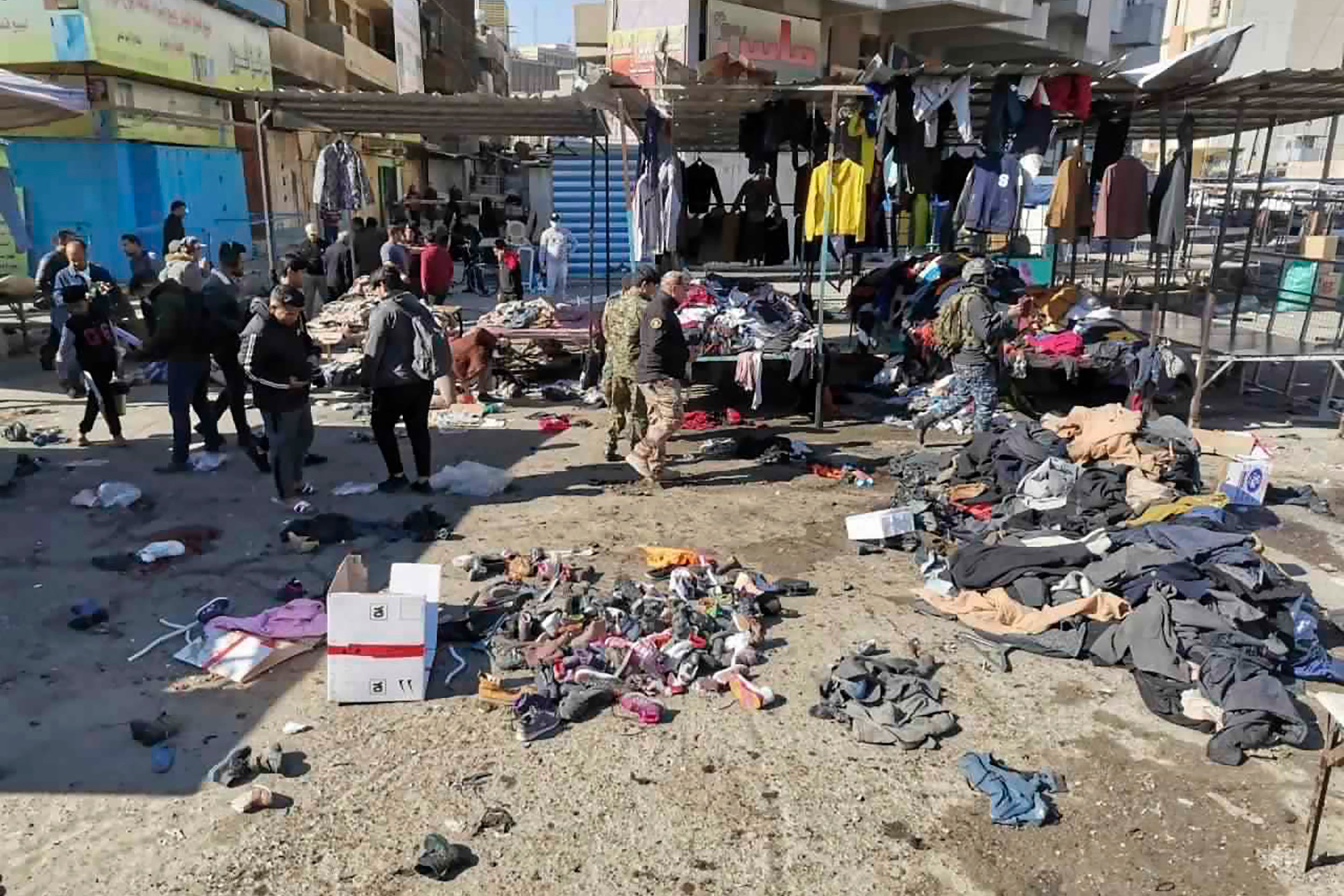Islamic State claims deadly and rare twin blasts in Baghdad
Islamic State has claimed responsibility for a rare suicide attack that rocked central Baghdad, killing 32 people and wounding dozens

Your support helps us to tell the story
From reproductive rights to climate change to Big Tech, The Independent is on the ground when the story is developing. Whether it's investigating the financials of Elon Musk's pro-Trump PAC or producing our latest documentary, 'The A Word', which shines a light on the American women fighting for reproductive rights, we know how important it is to parse out the facts from the messaging.
At such a critical moment in US history, we need reporters on the ground. Your donation allows us to keep sending journalists to speak to both sides of the story.
The Independent is trusted by Americans across the entire political spectrum. And unlike many other quality news outlets, we choose not to lock Americans out of our reporting and analysis with paywalls. We believe quality journalism should be available to everyone, paid for by those who can afford it.
Your support makes all the difference.The Islamic State claimed responsibility for a rare suicide attack that rocked central Baghdad, killing 32 people and wounding dozens.
The bombing targeted "apostate Shiites," the group said in a statement on an IS-affiliated website late Thursday.
At least 32 people were killed and over 100 people wounded in the blasts on Thursday. Some were in severe condition. According to officials, the first suicide bomber cried out loudly that he was ill in the middle of the bustling market, prompting a crowd to gather around him — and that’s when he detonated his explosive belt. The second detonated shortly after.
The U.S.-led coalition recently ceased combat activities and is gradually drawing down its troop presence in Iraq, sparking fears of an IS resurgence. The group has rarely been able to penetrate the capital since being dislodged by Iraqi forces and the U.S.-led coalition in 2017.
The attack was the first in nearly three years to hit the capital. Elsewhere, in northern Iraq and the western desert, attacks continue and almost exclusively target Iraqi security forces.
An increase in attacks was seen last summer as militants took advantage of the government’s focus on tackling the coronavirus pandemic and exploited security gaps across disputed territory in northern Iraq.